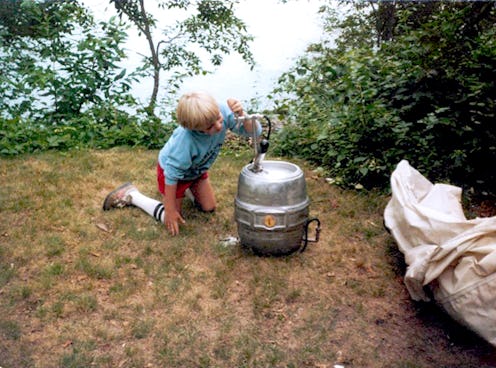Life
Should You Let Your Kids Try Alcohol?

If your parents ever let you have a sip of wine at dinner when you were a kid, I have some bad news. According to a new study, letting kids taste alcohol early may be pretty bad for them — and could even lead to serious drinking problems later in life. Soooo... that's not good.
The study found that kids who had tried alcohol prior to sixth grade, even in very small amounts, were five times more likely to have a full drink before high school and four times more likely to have gotten drunk or engaged in binge drinking by the end of their first semester of ninth grade. And obviously, these are all things that aren't good for 14 or 15 year olds, given the effects that excess alcohol can have on developing brains. Studies have also found that excess drinking during adolescence can make people prone to serious drinking problems later in life.
So basically, anything that encourages young people to drink in excess is probably not a good thing.
This information flies in the face of conventional wisdom in countries like Europe where it is common for parents to given children a sip of alcohol with dinner or to let them have watered down alcoholic beverages from a relatively young age. The assumption is that if children are allowed to have alcohol in small amounts in a family setting while still young, it will teach them moderation and make them less likely to lose control when they grow up and start drinking more heavily. Unlike in America where kids are kept away from alcohol as long as possible and then don't know how to handle drinking once they start.
But it seems that while that sounds good in theory, it might not work out so well in the real world — though it's also possible that culture plays a role in drinking habits as well. Here in America, alcohol is seen by the culture at large as a kind of forbidden temptation, something dangerous and glamorous, rather than just... normal. After all, this is the country with one of the highest rates of binge drinking in the world. We don't specialize in media representations of booze as something with very little significance that adults consume in moderation. Even if individual parents try to treat it that way, it's hard to counteract the cultural message. And given this latest study, it might be best not to try.
It's questionable how universal this study's findings may be — all of its data comes from Rhode Island, so it's obviously not nationally representative. But still, maybe it's best not to let the kids try a sip of wine after all — or at least, not until they're a little older.